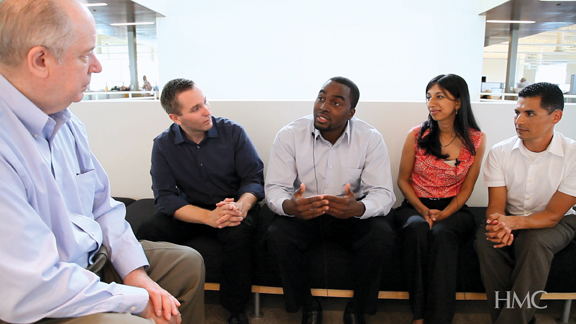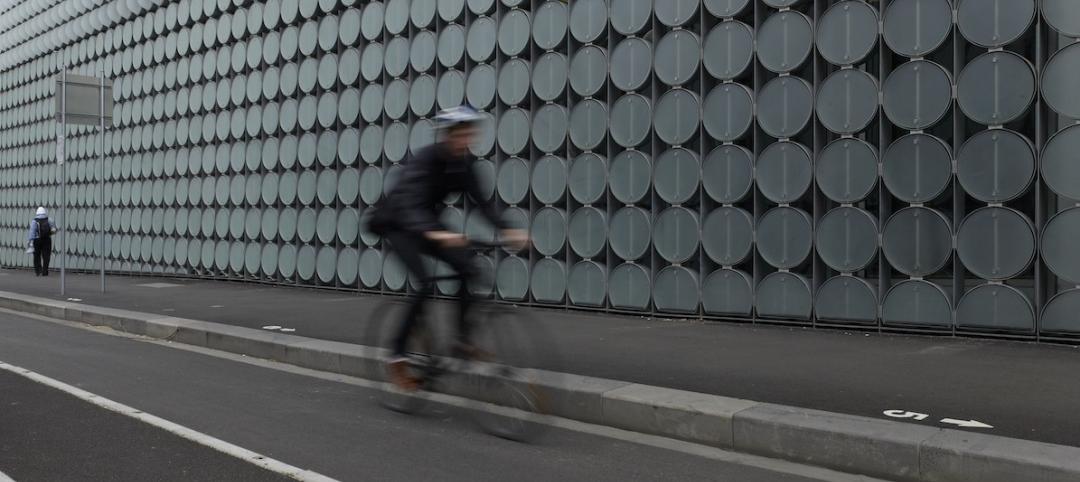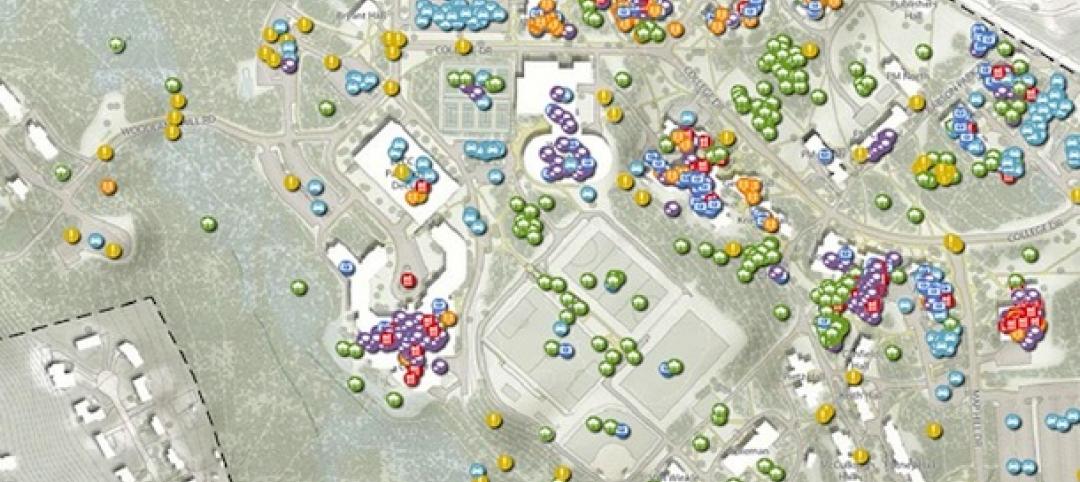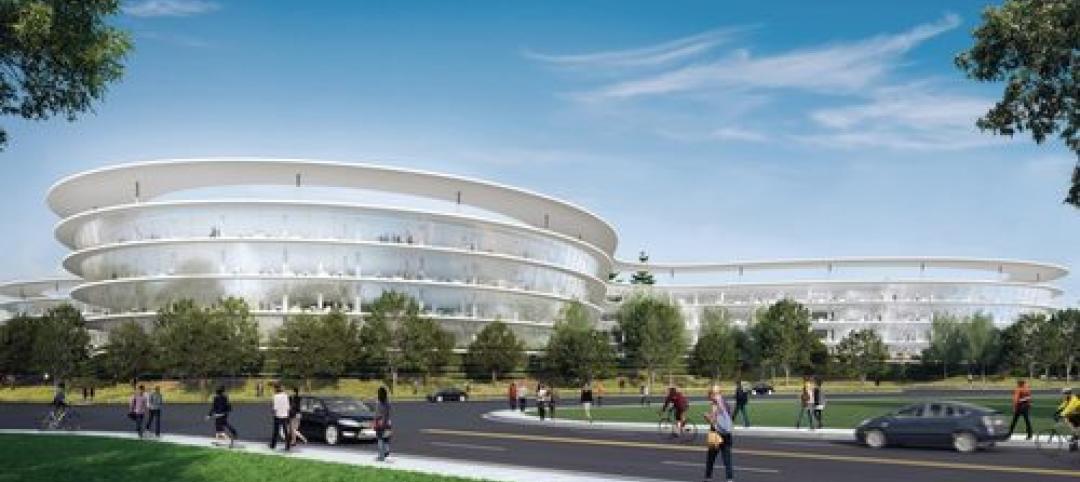“We take a multifaceted approach to professional development,” says Pasqual V. Gutierrez, AIA, Director of Architecture. Among HMC’s career development programs:
• IDP Forum, held once a month for those employees who are fulfilling the Intern Development Program. “We use the AIA Emerging Professional Companion in combination with specs of real HMC projects, so that they learn about specifications but also our HMC protocols,” says Gutierrez.
• After-hours study programs for employees preparing for the Architectural Registration Exam are supported by senior architects.
• Accessibility Workshop: a five-hour program held in odd-numbered years for employees—and clients—who need to meet state licensure renewal requirements for Mandatory Accessibility coursework.
• Access to 1,040 hours of the AIA Virtual Convention for 80 licensed architects at the firm to view and earn AIA/CES learning units.
The Emerging Leaders Forum is a two-year “corporate overlay experience” program for mid- and upper-level management-track staff to hone their corporate governance skills. Emerging leaders engage in reading assignments, community service, and professional practice mentoring sessions to help them refine their practical skills while providing insight into executive management.
At the top level, Principals, Associate Principals, and Senior Project Managers are provided a reimbursable allowance for conferences and books, plus each studio managing principal receives a discretionary fund to administer education and training for technical and administrative staff.
In what may be a unique offering, HMC recorded a thousand hours of its own lunch-and-learn “Back2Basics” learning workshops—covering such topics as BIM and cost controls—and contracted with the AIA to make them available online to HMC staff for continuing education credits.
Two employee-initiated forums meet after hours to explore issues in design, take field trips, make presentations, and enter competitions, all on their own time.
Every September, HMC’s ArchLab takes a group of 20 or so employees into the woods for a weekend retreat to dig into sustainability. “We don’t talk about LEED,” says Gutierrez. “We talk about high-performance architecture and the strategies you need to deliver it.”
More at: www.BDCnetwork.com/HMC/Careers. +
Related Stories
| Feb 14, 2014
Must see: Developer stacks shipping containers atop grain silos to create student housing tower
Mill Junction will house up to 370 students and is supported by 50-year-old grain silos.
| Feb 14, 2014
The Technology Report 2014: Top tech tools and trends for AEC professionals
In this special five-part report, Building Design+Construction explores how Building Teams throughout the world are utilizing advanced robotics, 3D printers, drones, data-driven design, and breakthroughs in building information modeling to gain efficiencies and create better buildings.
| Feb 14, 2014
Crowdsourced Placemaking: How people will help shape architecture
The rise of mobile devices and social media, coupled with the use of advanced survey tools and interactive mapping apps, has created a powerful conduit through which Building Teams can capture real-time data on the public. For the first time, the masses can have a real say in how the built environment around them is formed—that is, if Building Teams are willing to listen.
| Feb 13, 2014
University officials sound off on net zero energy buildings
As part of its ongoing ZNE buildings research project, Sasaki Associates, in collaboration with Buro Happold, surveyed some 500 campus designers and representatives on the top challenges and opportunities for achieving net-zero energy performance on university and college campuses.
| Feb 13, 2014
3 keys to designing freestanding emergency departments
Having physically disassociated from a central hospital, FEDs must overcome the particular challenges associated with a satellite location, namely a lack of awareness, appeal, and credibility. Gresham, Smith & Partners' Kristin Herman-Druc offers three keys to success.
| Feb 13, 2014
Why you should start with a builder
They say the best way to eat an elephant is one bite at a time. Expanding your building or constructing a new structure for your business, church, or school isn’t all that different. Attacking it is best done in small, deliberate pieces.
| Feb 13, 2014
Related Companies, LargaVista partner to develop mixed-use tower in SoHo
The site is located at the gateway to the booming SoHo retail market, where Class A office space is scarce yet highly in demand.
| Feb 12, 2014
First Look: Futuristic Silicon Valley campus designed to draw tech startups
The curved campus will consist of four different buildings, one exclusively for amenities like a coffee bar, bike shop, and bank.
| Feb 12, 2014
IIT's College of Architecture launches the Mies Crown Hall Americas Prize
Awarded biennially with a $50,000 prize, the program will recognize the most distinguished architectural works built on the North and South American continents in the preceding two years.
| Feb 11, 2014
Adobe Photoshop update features new 3D printing capabilities
Available as part of an update to Photoshop Creative Cloud, the tool enables users to easily and reliably build, refine, preview, prepare, and print 3D designs.

















